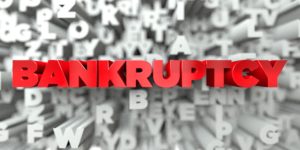 Courts have adopted two different approaches on the impact of section 348(f)(1)(A) with respect to changes in property value or net equity between the petition date and the date of conversion from Chapter 13 to Chapter 7. Section 348(f)(1) of the Bankruptcy Code provides:
Courts have adopted two different approaches on the impact of section 348(f)(1)(A) with respect to changes in property value or net equity between the petition date and the date of conversion from Chapter 13 to Chapter 7. Section 348(f)(1) of the Bankruptcy Code provides:
When a case under chapter 13 of this title is converted to a case under another chapter under this title –
(1)(A) property of the estate in the converted case shall consist of property of the estate, as of the date of filing of the petition, that remains in the possession of or is under the control of the debtor on the date of conversion; [. . . ]
(2) If the debtor converts a case under chapter 13 of this title to a case under another chapter under this title in bad faith, the property of the estate in the converted case shall consist of the property of the estate as of the date of conversion.
In re Horton, 130 B.R. 326 (Bankr.D.Colo.1991), stands for the proposition that equity which a debtor acquired in his automobile during the pendency of a Chapter 13 case was not property of the estate upon conversion to a Chapter 7 case. A similar conclusion was reached in In re Sargente, 202 B.R. 1023 (Bankr.S.D.Fla.1996) (filed before the effective date of Section 348(f)(1)(A)), where at the time the Chapter 13 petition was filed there was no equity for the estate in two vehicles. The plan was confirmed and the debtors made payments on the vehicle debt. The case was subsequently converted to a case under Chapter 7 and the trustee made a claim to the non-exempt equity created by the pay-down. The court decided that the debtors should be allowed to keep the equity created post-petition.
A similar conclusion was reached it In re Nichols, 319 B.R. 854 (Bankr.S.D.Ohio 2004). The court stated that Congress did not intend that a chapter 13 debtor should lose the benefit of any equity accrued in an asset because of said debtor’s compliance with the Chapter 13 plan payments. The court found ambiguity in whether the definition of “property of the estate” included equity. Section 541(6) clearly excludes earnings for debtor’s services after commencement of the case and in normal situations where a debtor purchases new assets with those earnings, it would not be argued that those new assets were property of the estate. Id. at 856-57. However, if those earnings are used to “purchase” equity in existing assets, it is not clear from a straightforward reading of Sections 541 or 348 whether that new equity is property of the estate. The court then concluded that the legislative history to Section 348 clearly indicated that it was not. In this regard, the court stated as follows:
Congress was concerned that transferring the benefits made by a debtor by diligently making payments under a chapter 13 plan to the unsecured creditors if the case converted to one under chapter 7 “would create a serious disincentive to chapter 13 filings because debtors would fear that property attained after filings, including equity created by payment of secured debts, could be lost if the case were converted. The legislative history also states that equity created during the chapter 13 case is not property of the estate.”
Id at 856 (quoting Collier on Bankruptcy 348.07[1] (15th ed. rev’d 2004)).
In In re Robinson, 472 B.R. 854 (Bankr.M.D.Fla.2012), the court agreed with the reasoning in Nichols. The court concluded that the legislative history of the 1994 amendments to Section 348(f) indicated that debtors were to be encouraged to make payments in Chapter 13 rather than filing under Chapter 7, and that they should not be penalized for attempting to repay their debts in Chapter 13 even though they may later find it necessary to convert to a Chapter 7 case. Id. at 856. Further, the court found support in Section 348(f)(2) which provides that if it is found a debtor converted his or her case from Chapter 13 to Chapter 7 “in bad faith,” then the property of the estate in the converted case is determined as of the date of conversion. The court concluded that “the import [of this subsection was] that as a consequence of converting in bad faith, the debtor will lose the benefit of any equity accumulated by way of his or her Chapter 13 payments.” Id. at 857.
An opposite conclusion was reached in In re Wegner, 243 B.R. 731 (Bankr.D.Neb.2000), which converted to a Chapter 7 case post-confirmation. During the Chapter 13, debtor’s home gained $9,500 in value. The debtor created an additional $2,100 in equity by a pay-down of the home mortgage. The court applied Section 348(f)(1)(A) to hold that the house was property of the Chapter 7 estate. It further held that the $2,100 equity gained by virtue of debtor’s payments should also be included in the Chapter 7 estate, stating “Section 348 does not explicitly protect an equity cushion that is created by payments made during the pendency of the Chapter 13 case.” Id. at 735.
A similar conclusion was reached in In re Peter, 309 B.R. 792 (Bankr.D.Or.2004) wherein the debtor filed a Chapter 13 petition listing in his schedules a 1998 Honda Civic valued at $7,500. The debtor’s original, amended and second amended Chapter 13 plans all provided that the secured lender in this vehicle would be paid directly. Confirmation was delayed pending claims litigation and eventually confirmation was denied and the case was converted to a Chapter 7 case. During the course of the Chapter 13, the debtor paid off its lender on the vehicle from post-petition wages and the vehicle was now free and clear of liens. At the time of the conversion, the vehicle was still in the debtor’s possession and control. The court held that the vehicle and all of the equity created in the Chapter 13 case were part of the Chapter 7 estate. In reaching this conclusion, the court stated that Section 348(f)(1)(A) stated that upon conversion, property of the Chapter 7 estate consisted of property of the estate as of the date of filing the petition and remained in possession of or in the control of the debtor on the date of conversion. There was no dispute that the vehicle was property of the estate after the filing of the Chapter 13 petition. The court then stated that “the statute does not limit the subsequent Chapter 7 estate to ‘equity in’ ‘property of the estate’ as of the filing of the Chapter 13 petition.” Id. at 795.
In In re Castleman, 2021 WL 2309994 (Bankr.W.D.Wash. June 4, 2021), the court held that any appreciation or increase in net value inures to the Chapter 7 estate. Castleman stated that Section 348(f)(1)(A) eliminates a disincentive with respect to Chapter 13 debtors regarding the risk of losing assets acquired between the date of petition and conversion to the Chapter 7 trustee if the Chapter 13 case is eventually converted. However, it does not address the effect of conversion on paydown of secured debt during the Chapter 13 case or changes in the value of pre-petition assets. Castleman noted that there was simply no ambiguity here. Section 348(f)(1) simply does not address the scenario. Thus, based on the unambiguous language in section 348(f)(1)(A), in an individual Chapter 7 case new post-petition assets belong to the debtor not the bankruptcy estate. However, post-petition appreciation is not treated as a separate asset from pre-petition property and inures to the bankruptcy estate, not the debtor. See, In re Peters, 309 B.R. 792, 795 (Bankr.D.Or.2004) and In re Goins, 549 B.R. 510, 516 (Bankr.E.D.Va.2015).
Matthew T. Gensburg
[email protected]

